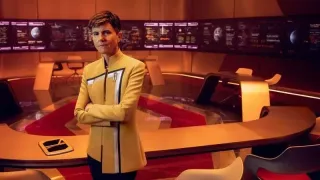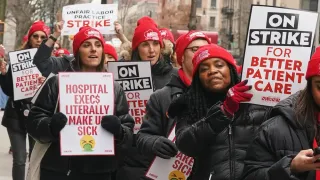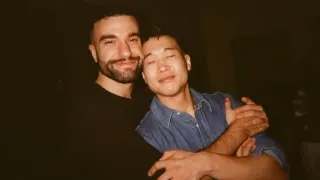December 29, 2015
Quinceanera Fashion Booms in Havana
Christine Armario READ TIME: 5 MIN.
Up a winding flight of stairs at a beachside Havana home, Camila Lopez Rivas lies on the tile floor, smiling mischievously into a video camera circling overhead.
Tossed around her are layers of a blue and aqua taffeta dress, the first of nine outfits the 14-year-old will pose in, from colonial ball gowns to a neon green bikini.
Camila lives in Miami, the daughter of a truck driver who left Cuba when she was a baby. She doesn't remember the island, but wanted to return for the photographs and videos that Latin American girls typically take for their 15th birthdays.
"I left very young," Camila said between a halt in the taping. "But I'm from here."
Such voyages back to Cuba are becoming increasingly common for girls who find that marking the milestone on the island is both appealing and economical. Cuban reforms permitting small-scale, private businesses and the re-establishment of U.S.-Cuban diplomatic relations have encouraged new photo and event planning businesses for events such as girls' 15th birthdays.
The complicated networks connecting Cubans in Miami and Havana feed the growth: Camila learned about Marbella Studio, the business she hired, from another girl in Florida who had her photos taken there.
Marbella Studios in Guanabo, a 30-minute drive from Havana, is located in an Art Deco-style home and employs 12 photographers, stylists and videographers. There are more than 500 outfits to choose from in three dressing rooms and a calendar full of appointments with clients. Owner Sarah Medina Vigor said about 60 percent of the 500 or so girls her studio photographs each year travel here from other countries, with July and December being the peak months.
'Cuba is in Style'
Celebrations known as "quinceaneras," marking a girl's 15th birthday and recognizing her transition to womanhood, date back centuries in Latin America. Some vestiges of the older celebrations remain, with Latin American girls performing traditional waltzes. But in Cuba, photographs are the main focus.
Signs for new photo businesses that document 15th birthdays line the doorways of decrepit Havana buildings and advertisements abound on websites such as Revolico.com, an underground Cuban Craigslist. Many studios are run by former state sector professionals who purchased cameras with the help of U.S. relatives and have found taking pictures far more profitable than the average monthly government salary of $20.
Alberto Gonzalez, owner of Aladino photo studio, said he saw an equal number of clients from Cuba and abroad over the summer. "This year, more came than any other," he said of the visitors.
But the daughters of workers in Cuba's emerging private sector are also helping fuel business. With the economic reforms, many families on the island now have extra cash to spend for quniceanera celebrations.
They include 14-year-old Dachely Silva, who sat at Aladino one afternoon before a gold-rimmed mirror as a makeup artist layered mascara onto her eyelashes. Her mother, Mayelin Alfonso, recalled posing in just one dress for her own 15th birthday.
Now, her husband has a business driving tourists around in a restored classic American car. Without the business, "we would not be able to afford this," Alfonso said.
Quinceanera packages at most studios start around $150 and include professional hair and makeup artists, scenic Havana backdrops and multiple wardrobe changes - a bargain compared to similar services in the U.S. that typically start at about $1,000.
In the past, quinceanera photos typically featured girls in poufy dresses and crowns. But at many Havana studios, there are now punk-rock style sneakers and miniskirts among the rows of high heels and gowns. The girls also pose in bikinis, feathered boas and little else for photos that would raise eyebrows back in some parts of the U.S.
Some girls hold their quinceanera parties in Cuba as well. On one fall evening, dozens of teens stood outside a new party hall in a restored colonial building where a woman who lives in the U.S. was throwing her sister a 15th birthday party.
A guest, 14-year-old Maria Fernandez of Havana, said it was "very emotional" to see friends come back to the island for their 15th birthday celebrations. "They have friends and an entire life here," she said.
Daniela Santos Torres, 14, left Cuba when she was 3, returning in December for her quinceanera photos and party. She now lives in Glendale, Arizona, where her father runs a home remodeling business. She said returning to Cuba for her celebration was "a dream," allowing her to include her extended family and friends on the island.
While many Cuban Americans who left the island shortly after the 1959 revolution remain reluctant to visit, those who left for primarily economic reasons over the past decade rarely hesitate to return.
"Recent Cuban immigrants tend to support more engagement of all kinds with Cuba, including restoring diplomatic ties, lifting the embargo, allowing travel by all U.S. citizens, and investing in the fledgling private sector of the island's economy," said Jorge Duany, director of Florida International University's Cuba Research Institute.
Camila finished her eight-hour photo and video shoot with a session at the beach. In February, she'll return for her party at the Melia Cohiba Hotel near Havana's Malecon seaside promenade.
"Cuba is in style," said her father, Eliecer Lopez Rufin. "Everyone wants to come do their party here."






